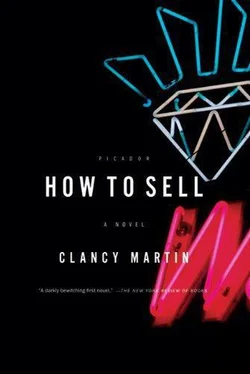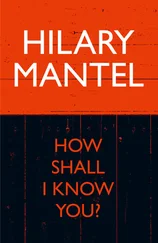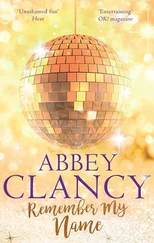Clancy Martin
How to Sell
O ur father told it that Jim was caught dressing up in my grandmother’s black Mikimotos when he was scarcely two years old, but the first time I considered jewelry was the morning I stole my mother’s wedding ring. It was white gold. A hundred-year-old Art Nouveau band with eleven diamonds in two rows across the finger, garnets that were sold as rubies in the centers of tiny roses on both sides, and hand-engraved scrollwork on the underside where it held the skin. It was the only precious thing she had left. It was never from her hand. But there it was on the sill of the window, above the kitchen sink, next to a yellow and green plant she kept.
I needed the money. My girlfriend was leaving me for a grocery store produce clerk named Andrew, a high school basketball forward, and I knew I could buy her back. So I took the ring and put it in my pocket. I removed the red rubber stopper from the drain so that my mother would believe the ring had flushed into our plumbing. For good measure I ran the water to wash it down. She might be in the other room listening.
There was a pawnshop I trusted on Seventeenth Avenue, two blocks from my high school. Woody’s Cash Canada. It had a banner in the front window that read WE BUY BROKEN GOLD. It was on the first floor of a three-story building with a barbershop on the second floor and a pool hall on top. We were told never to go into that pool hall. Of course, I should have gone to a pawnshop farther from home but I had not yet learned to reflect in that way. The barbershop was on the second floor and there were stacks of Cheri, Fox, Club Confidential , and other shiny porno magazines on the wooden side tables next to the chairs where you waited. Some men fingered them while they were having their hair cut. When my brother and I were kids I was afraid to look at those magazines, then when I was older and went in alone I pretended to be uninterested.
Woody’s was the authentic variety of pawnshop, the sort I would come to love: three full jewelry cases with real bargains on minor-brand Swiss watches, early-twentieth-century American fourteen-and sixteen-karat rose and copper gold watch heads, Art Deco Hamiltons and Gruens, and odd antique pieces — this was the kind of place where you might even find a natural pearl or an unrecognized tsavorite garnet or a piece of really good old orange citrine — mixed in among crap like gold nugget bracelets and blue topaz pendants and amethyst rings.
“I know it’s not much. It’s an old ring, I guess.”
“It’s not so bad. Let’s see what it weighs. Is that platinum? Or just white gold?”
“I don’t know. What’s platinum?”
That was not a question for the seller to ask.
“I know those are diamonds, though. Those must be worth something.”
“Take a look under the loupe. Full of carbon. See those black specks? That’s called carbon. That’s what it is, too. Carbon molecules that never crystallized. Imperfections. Really hurts the value. Lots of inclusions, too. Internal flaws. But at least no cracks. That’s something. I couldn’t touch it if there were cracks. Too risky.”
He knew his business. Didn’t steam it, didn’t clean it at all. We were looking at sixty years’ worth of dirt, hair, and skin.
He gave me three hundred dollars for the ring, which was about correct. Given his position.
“I hate to sell it. I inherited it, you know. My grandmother.”
“I can loan against this,” he said. “This is a loan, no problem. Normally I will do better for a loan. But on this I advise you sell it outright.”
Then I wished I had said it was a friend’s. In case he called my parents or something.
“But there’s this girl.”
“Love is a good reason. The best reason. Think about it. That’s why your grandmother left it to you. She didn’t think you were going to wear it, did she? No. It was for a girl. If you need to sell it for the girl, that’s what she would have wanted. Women understand these things. What matters and what doesn’t. You should hear all the love stories they tell me in this place. A pawnshop is the place to learn about love.”
He took the ring into the back.
“Your grandmother had good taste in jewelry,” he said after he returned and paid me. “That won’t be here long.”
Good, I thought.
Today that ring would retail for seventeen, eighteen thousand, but at that time I imagine it brought three grand.
Don Strickland, who ran Woody’s, was an old guy and not a friend of mine but he had bought several things from me, including a heavy walnut box holding sterling flatware I had found in the bureau of an actual friend’s home. In fact it was not the friend’s home but a friend was babysitting there and a few of us got together to steal drinks from their liquor cabinet and watch a video. While the popcorn was popping I wandered into the dining room and found the silver. My friend Tina, the babysitter, came around the corner and caught me. But I had not moved it. I had only opened a drawer. So she could not say anything. She raised her eyebrows at me and said, “Bobby, what are you doing?” I explained that I was looking for a bowl for the popcorn. Before we left, after several drinks, while she was kissing the other friend of mine in a corner, I returned there and hurried out with the heavy box full of silver in my arms. I lost two friends that way. But I wasn’t ready to blame myself. They were not diligent about it. They could have spared all three of us the harm, if they had tried.
O ften, at night, when I was twelve, thirteen, fourteen, and it was winter and the snow was falling, I would leave our neighborhood and climb the hill up into Mount Royal, to walk through their streets and look into the illuminated windows of the houses. You know what that’s like: when it is very cold and motionless, because the snow is coming straight down, it hangs in circles in the streetlights, and inside the houses there is calm or happy movement, as though people are eating and laughing, and their lamps by their windows are like gold and jewels. I would listen to the snow under my tennis shoes, and fold my arms deeper into my coat. These houses were enormous: three, four, five times the size of ours, with larger and faster cars, yards like fields, and they were made of stone and brick, but nevertheless they seemed welcoming, they were warm places, you could see that easily enough. My father had grown up in a house like one of these. My mother, though, was raised in an apartment.
When we were down in Florida at Christmas my father would tell me, “You can have a poverty-consciousness, son, like your mother, or you can have a wealth-consciousness. It’s up to you. Some people are bound to be poor. Your mother and that idiot she married. They can’t help it.” That was a reason for those walks. To work on my wealth-consciousness.
E ven with many seasons of practice I have never been adept at stealing and when they kicked me out of high school it was stealing that did it. A case of class rings for the graduating seniors. When I got them to the pawnshop — after my mother’s ring I was using a different one, a dark-cornered place by the Alberta Liquor Store on the south edge of downtown, where you always stumbled over a couple of drunk Indians on the sidewalk and the aroma of human urine was strong — they proved to be base metal mock-ups. Brass and iron lightly electroplated in ten-karat gold and sterling silver.
The principal, Mr. Robinson, and the high school security guard had been after me for three semesters, so it was an excuse for them to play detective.
Читать дальше











